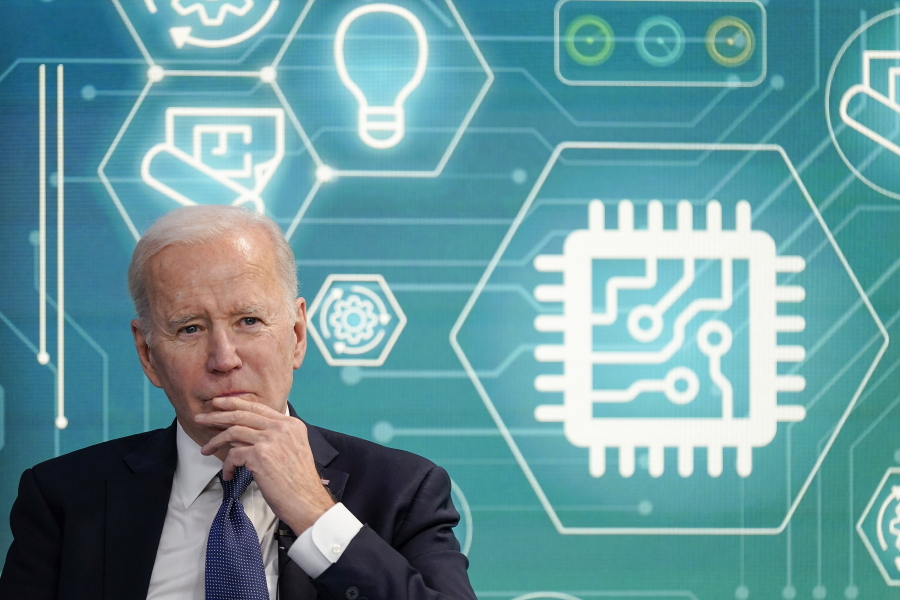WASHINGTON — The Biden administration’s move to block exports of advanced computer chips to China is signaling a new phase in relations between the globe’s two largest economies — one in which trade matters less than an increasingly heated competition to be the world’s leading technological and military power.
The aggressive move, announced last month, will help set the tone for President Joe Biden’s upcoming meeting with Chinese President Xi Jinping on Monday on the sidelines of the Group of 20 summit in Asia. It’s evidence of Biden’s determination to “manage” the U.S. competition with China, whose officials were quick to condemn the export ban.
After more than two decades in which the focus was on expansion of trade and global growth, both countries are openly prioritizing their national interests as the world economy struggles with high inflation and the risk of recessions. The U.S. and China have each identified the development and production of computer chips as vital for economic growth and their own security interests.
“We’re going to do whatever it takes to protect Americans from the threat of China,” Commerce Secretary Gina Raimondo said in an interview. “China is crystal clear. They will use this technology for surveillance. They will use this technology for cyber attacks. They will use this technology to, in any number of ways, harm us and our allies, or our ability to protect ourselves.”
Xi responded to the export ban in his statement at last month’s congress of the Chinese Communist Party, where he secured a third term as the country’s leader. He pledged that China would move more aggressively to become self-reliant in producing semiconductors and other technologies.
“In order to enhance China’s innovation capacity, we will move faster to launch a number of major national projects that are of strategic, big-picture and long-term importance,” Xi said.
Exports blocked
The Chinese government has named the development of advanced computer chips that could handle everything from artificial intelligence to hypersonic missiles as one of its top priorities. To bridge the gap until it can get there, China has been relying on imports of advanced chips and manufacturing equipment from the U.S., which imposed a series of export controls last month that block sending to China the world’s most advanced chips, factory equipment and industry experts tied to America.
The U.S. and its allies famously deployed export controls against Russia after its February invasion of Ukraine, making it harder for Russian forces to be resupplied with weapons, ammunition, tanks and aircraft. As a result of those constraints, Russia has relied on drones from Iran, and the U.S. has accused North Korea of supplying Russia with artillery.
The U.S. had until recently operated from the premise that strong trade relationships would bring countries closer together in ways that made the world safer and wealthier, a post-Cold War order. Global supply chains were supposed to lower costs, boost profits and enable democratic values to seep into the terrain of oligarchies, dictatorships and autocracies.
But amid a global pandemic, the war in Ukraine and China’s ambitions, the Biden administration and many European and Asian allies have chosen to prioritize national security and industrial strategies. Both the U.S. and the European Union have provided tens of billions of dollars in incentives to spur more domestic production of computer chips.



